I got this idea in my head to re-filter my old motor oil to try and produce some slightly cleaner oil. It seemed simple: oil was in the ground along time, and then it was refined. The stuff I had was just dirty oil. The oil itself isn’t that different from the original stuff.
A quick search turned up a few pages and a couple ideas:
- Filter the oil through a roll of toilet paper. This is actually mainstream, from the 1940s, and it was also in an article on Mother Earth News.
- Use a rope to “siphon” dirty oil into a clean container.
So, I decided to mess around with oil, rope, some filters, and see what happened.
The TL;DR: it didn’t work.
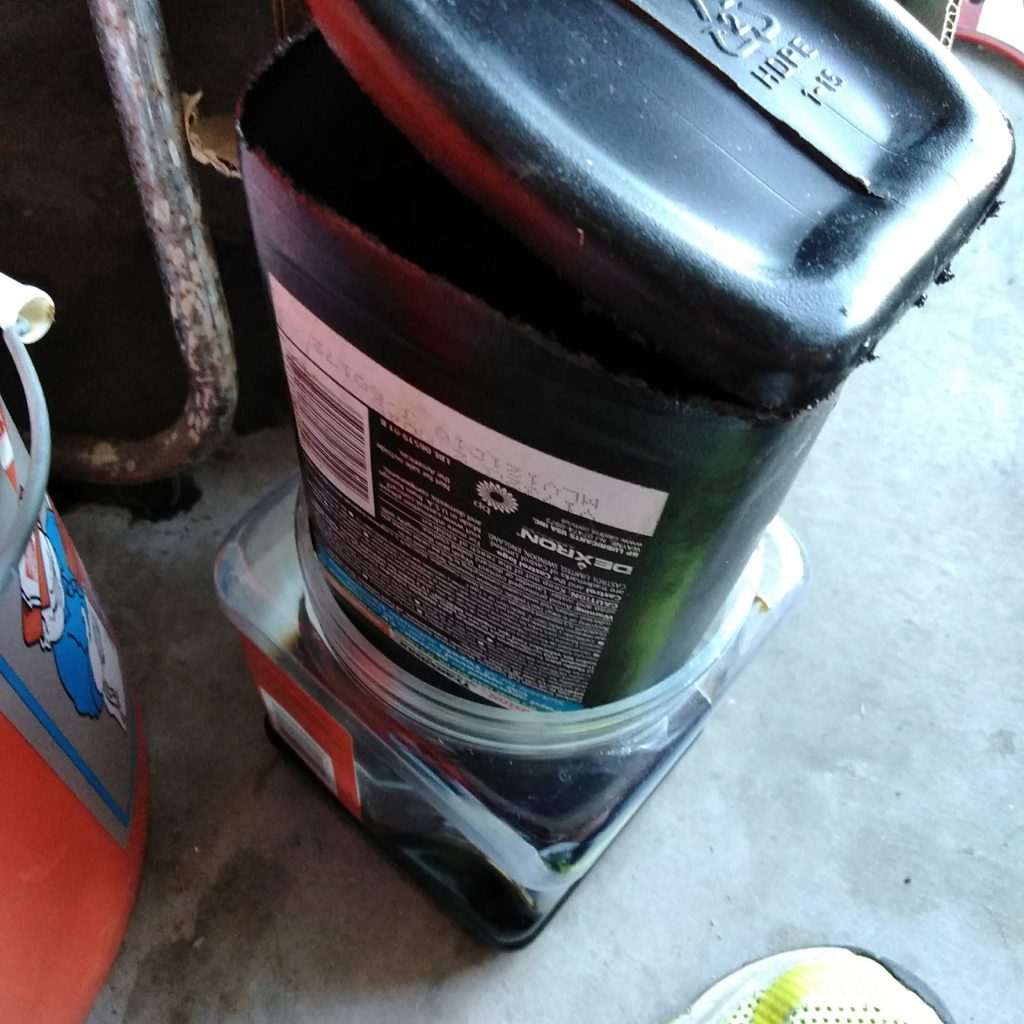
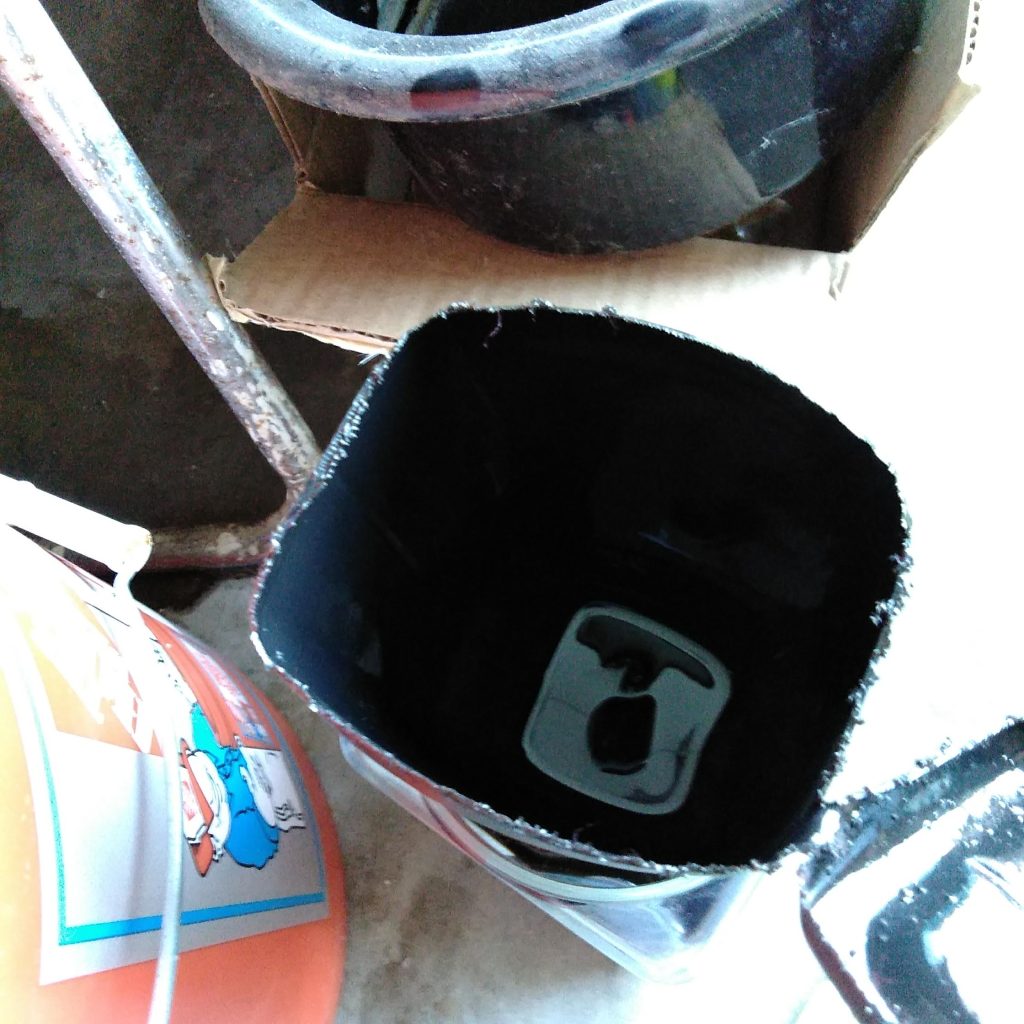
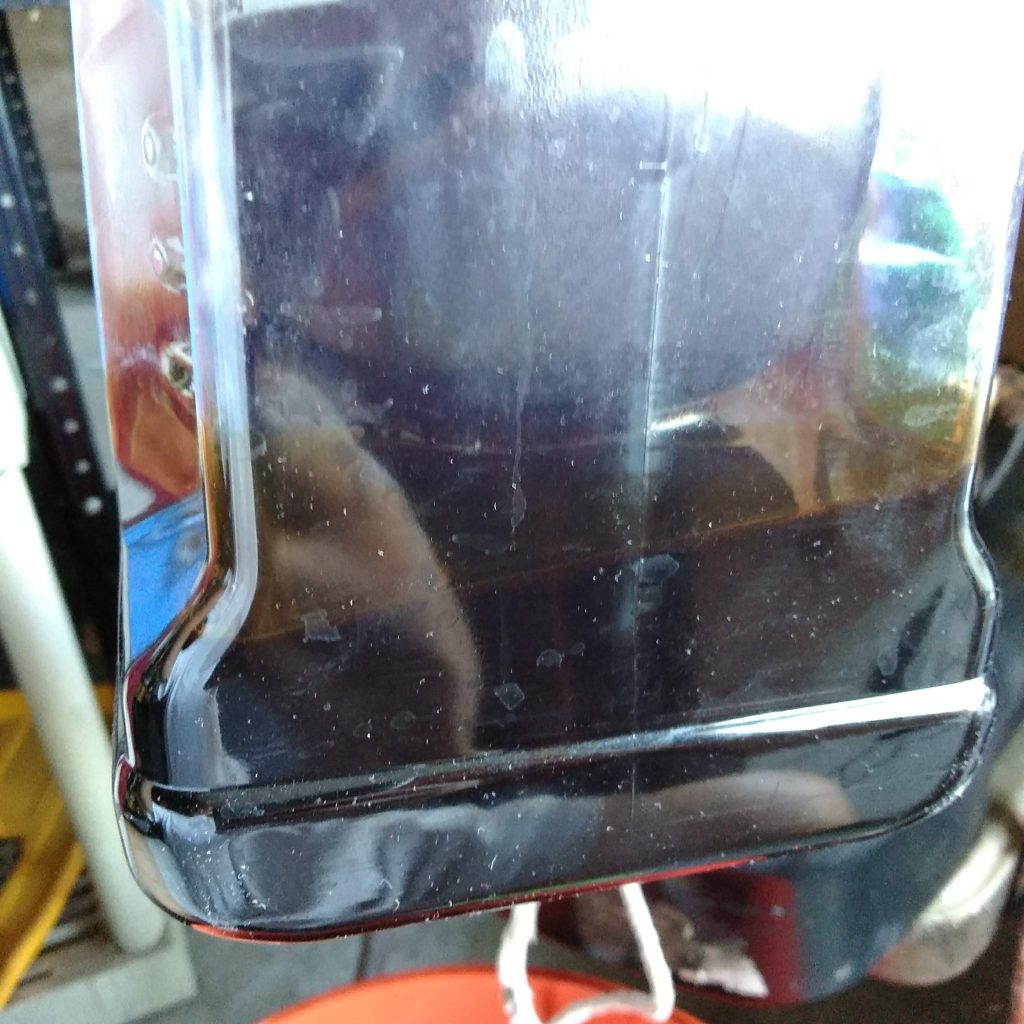
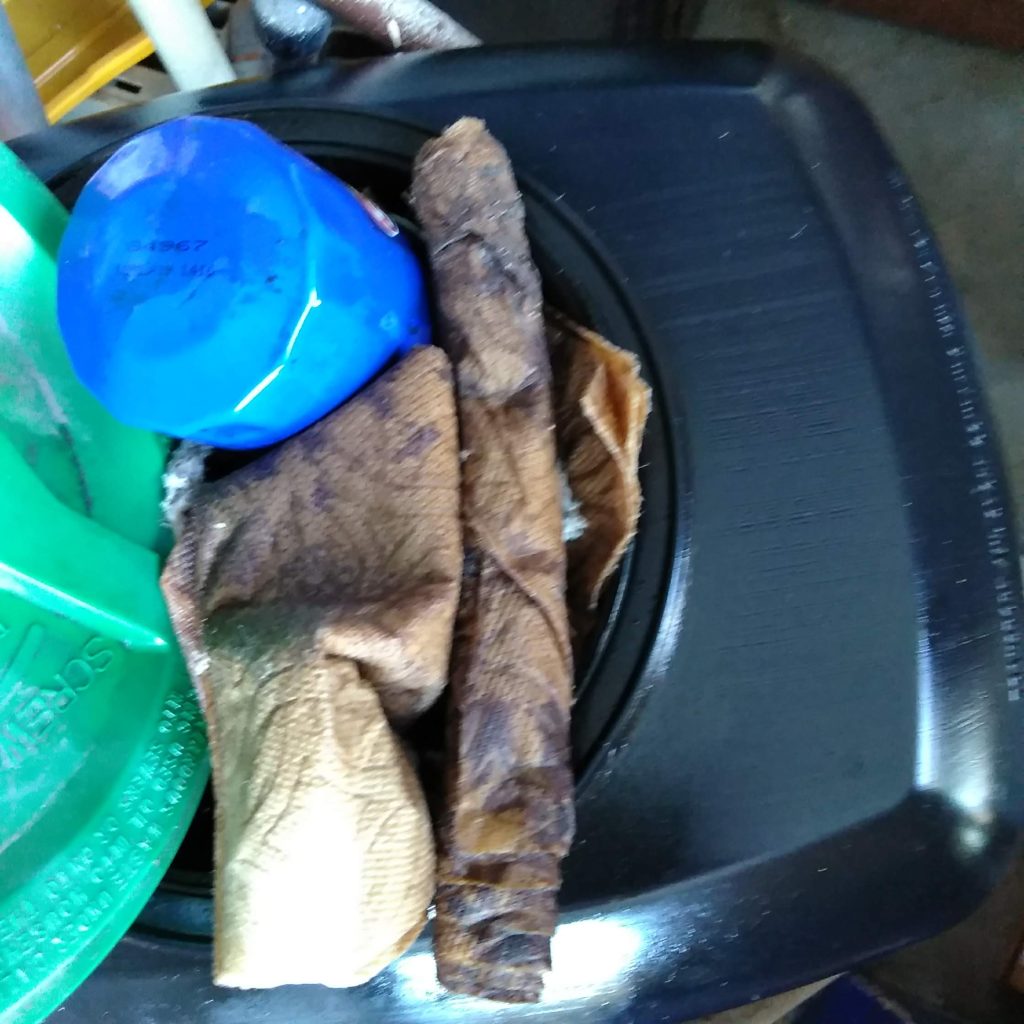

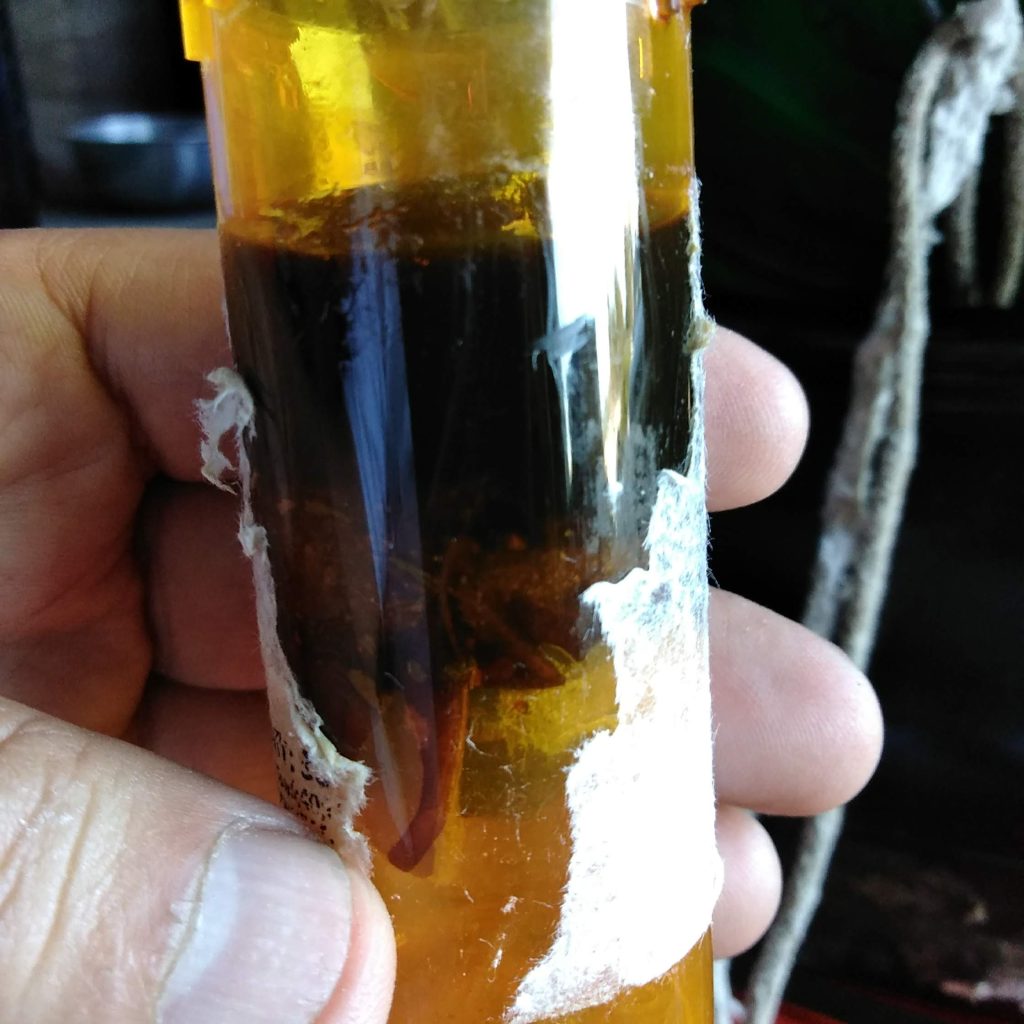
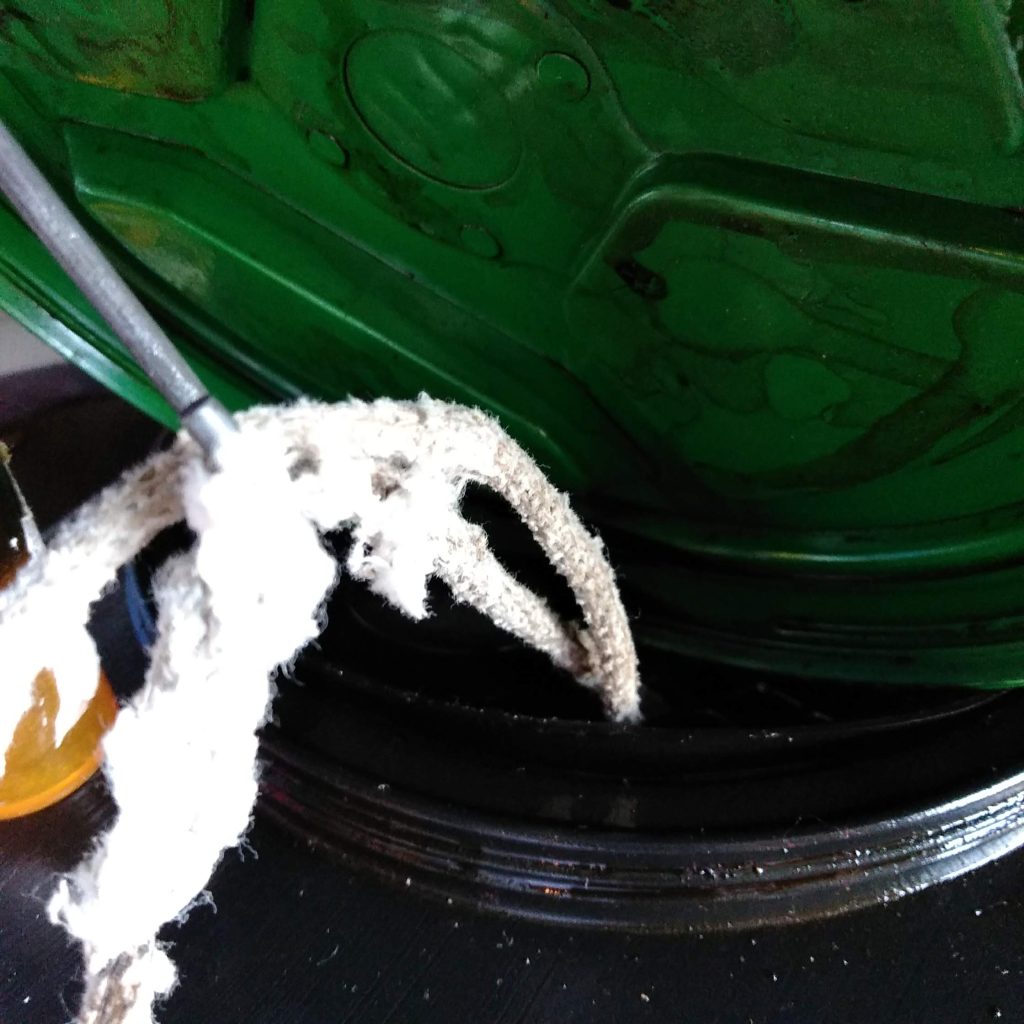
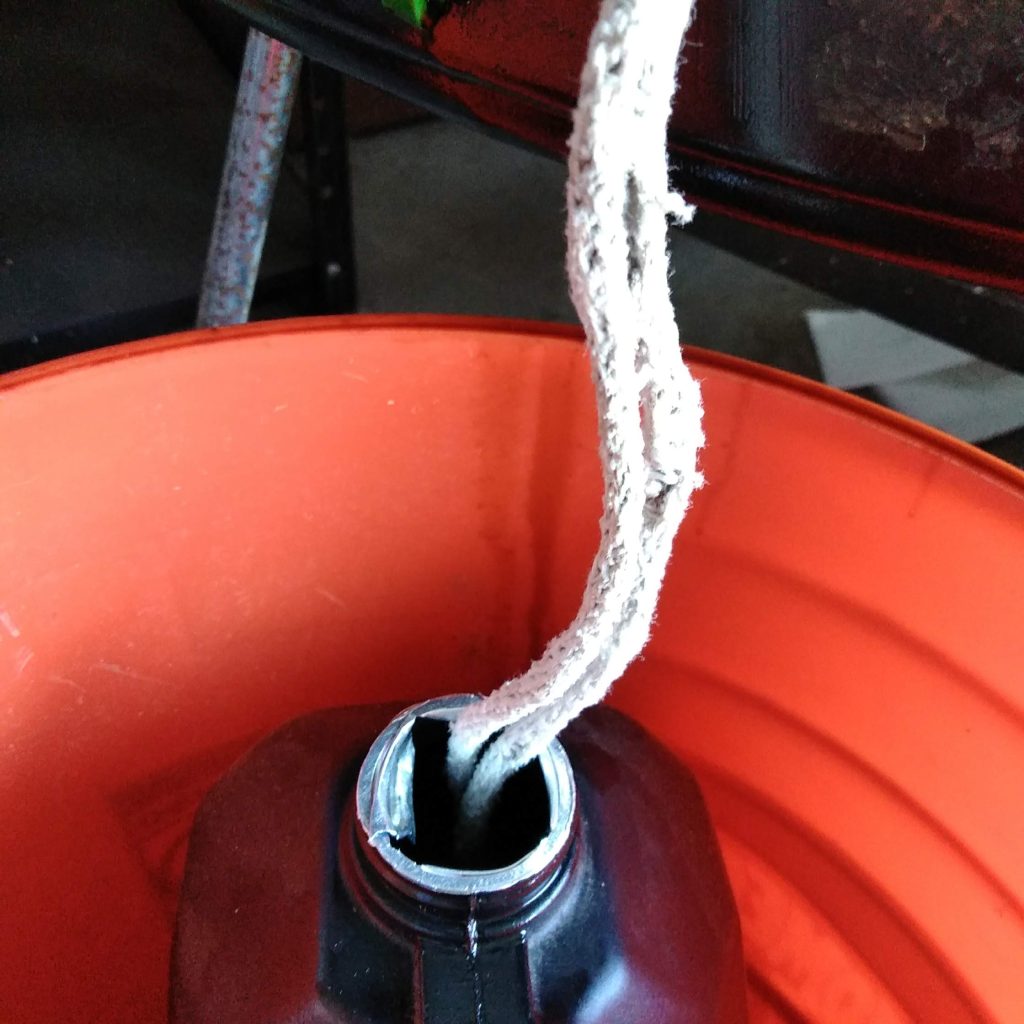
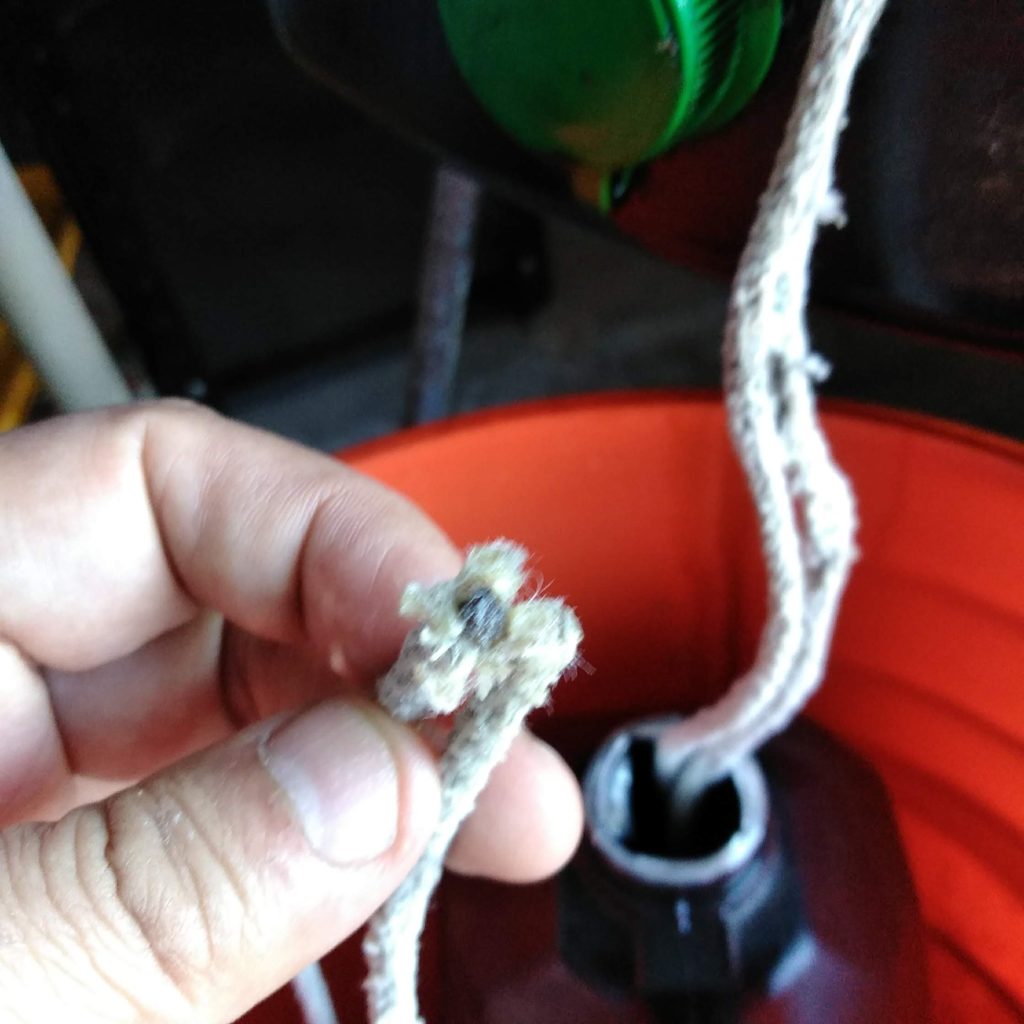
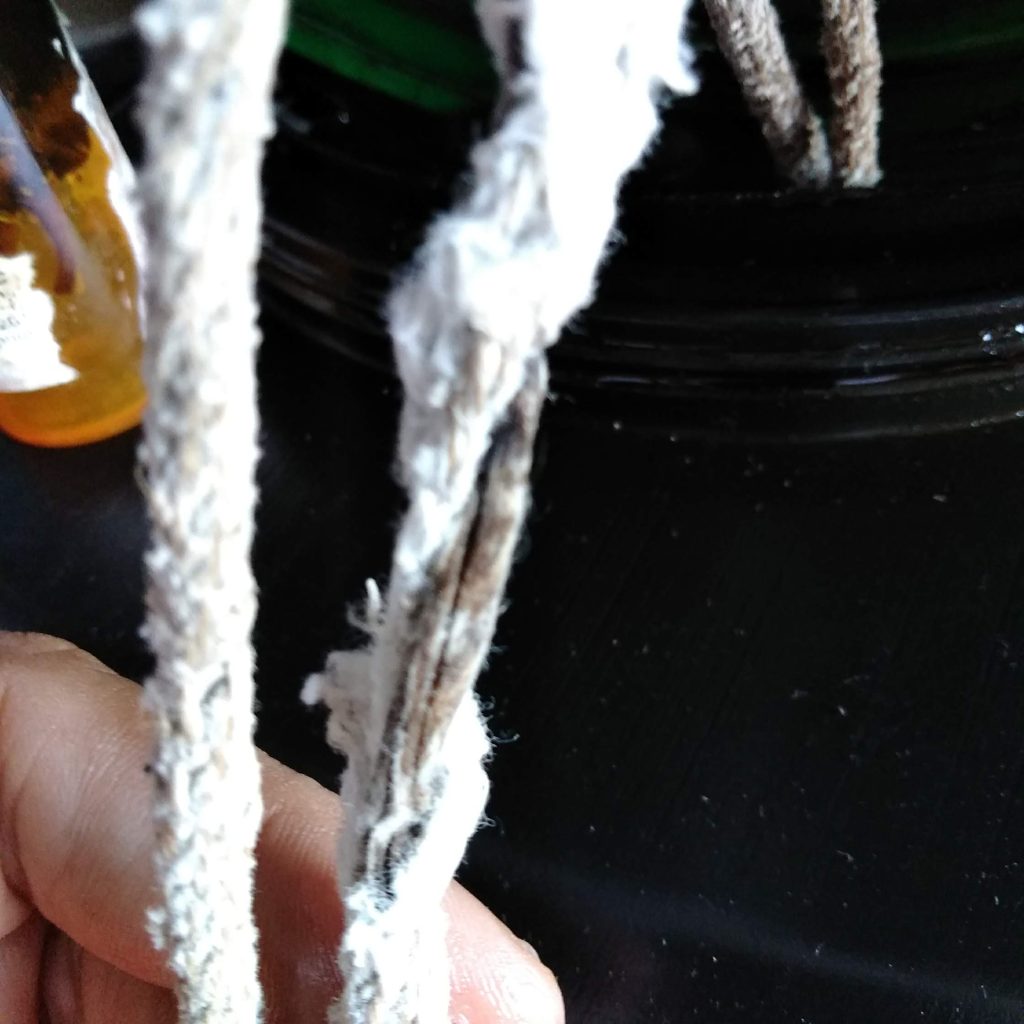
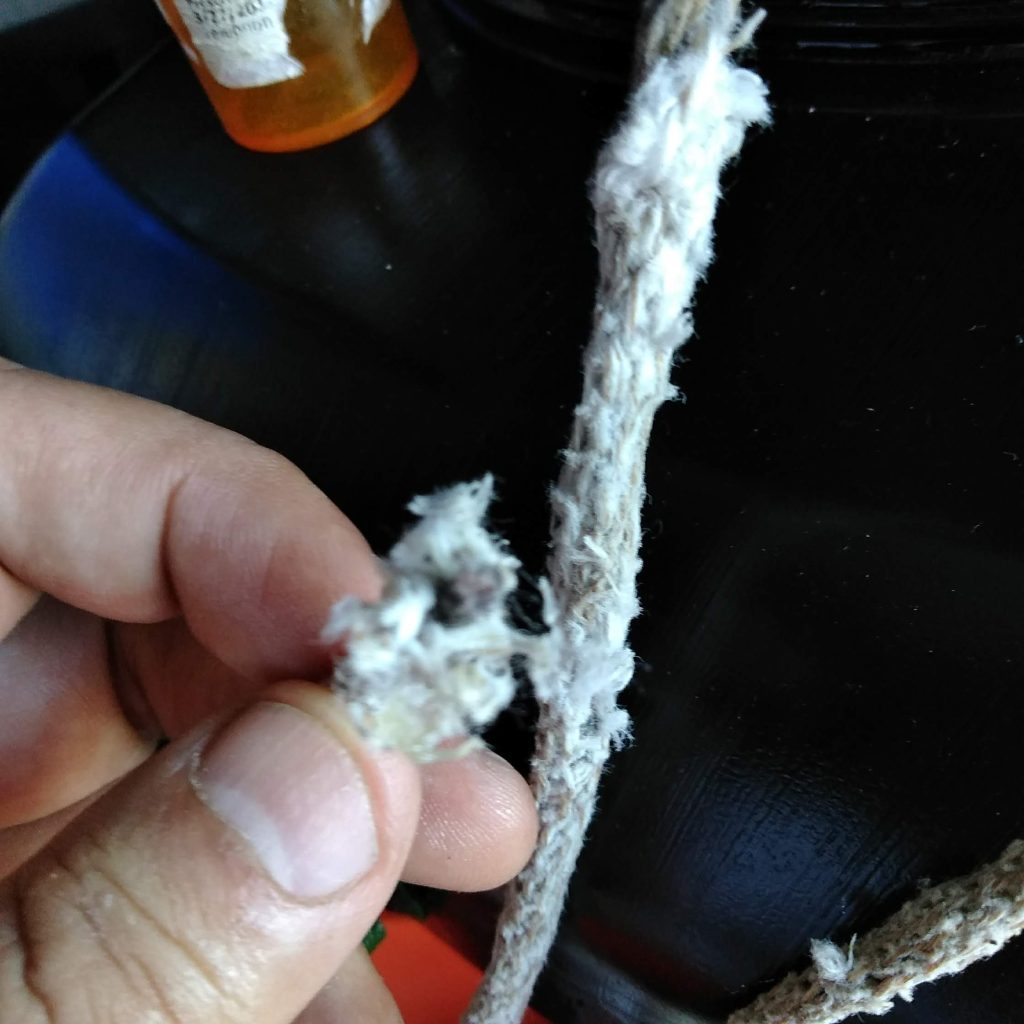
Making a Small Test Filter
I wasn’t willing to sacrifice an entire roll of toilet paper to see if that worked, so I took a piece of paper toweling and rolled it into a tight cylinder.
Then, I cut the bottom off an empty oil bottle (for transmission fluid), and stuffed the paper towel “filter” into there. Then I added some oil, and let it filter through.

The end result – it didn’t work. The oil went through, and it was dark. The paper toweling did have a little bit of a gradient, where one side was darker.
So perhaps the paper did catch some dirt or grime, and the oil was cleaner. It didn’t look clean enough to re-use in the car, however.


I did a second attempt to test with a tighter filter. I rolled up paper and stuffed it into a prescription pill bottle, and then poured oil on top of it.

This trial had some leakage, so I called it a failure. Opening up the filter revealed that it had a gradient, but, again, it was basically too dirty throughout.
I was expecting a much lighter color oil at one end of the gradient.
My hypothesis was that the particles would stick to the paper, and the oil would flow past it. I was wrong. The particles were probably the same size as the oil, or smaller. After all, what is in used oil: oil, burnt oil, burnt gasoline (you can smell it), bits of scraped off metal, other foreign objects, and things that were in the oil detergents, which were thin enough to pass through the oil filter.
What is burnt oil? I wasn’t sure, so I searched for “oxidizing hydrocarbons”. Turns out it’s not a simple subject, and the process and results can be either larger molecules (polymers) or smaller molecules (radicals).
Since old oil seems to “thin out” rather than thicken up in the engine, it’s probably not polymerizing. However, it’s also not thinning out too much.
Testing the Rope Filter Idea
I cut off a piece of clothesline and set up a “rope filter siphon”. My initial thought was that a siphon wasn’t necessary, and capillary action would be sufficient.
However, upon inspecting the rope, I noticed that the center was a piece of paper, with cotton yarns woven around it. Maybe elevating the oil would help.
I put the rope into the oil, and then ran the other end up to a little hook, and down into an empty bottle of oil.


Then, I waited a week to see if it worked.
Surprisingly, most of the cotton was not oily. So capillary action wasn’t going to do it.
Oil completely soaked the paper core. The rope had also become a little stiff. So, I suspect that oil had filled and swollen the paper.
That was promising, so I pulled out the bottle end and inspected it. Fresh oil soaked that end.
Not sure what to look for, I cut the rope closer to the dirty oil and inspected the paper to see if it was clean. It was not.

What a disappointment. Also, the volume of oil in the bottle hadn’t appeared to change.
Perhaps it did, but given a whole week, if it produced two ounces of oil, it would take a year to process a gallon of oil.
Conclusion: you cannot recycle oil using paper filters or rope.
However, that wasn’t the end of it: after taking oil to the parts store for recycling, I still had this oil mess.
What I ended up doing was wiping the oil onto my tools. The stuff will migrate onto the metal surfaces and help protect them by preventing the metal from oxidizing.
They might even polymerize a little bit and get sticky.
I also have a little bit of oil left in the bottle, so I can lubricate a few things for free. Why bother to buy oil for a few dollars per ounce, when there’s a gallon of it in the car, basically for free?
Recycle Used Motor Oil
People leave the used oil out in jugs, too. That’s not nice, because if the bottle’s popped open, it’ll leak out and pollute the dirt and water.
Take used oil to to any auto repair shop or parts store. Oil recyclers pay shops for used oil, and collect it in barrels.
In some places, they burn the used motor oil for heat, instead of using an electric or gas heater. While that sounds “dirty”, it really isn’t that dirty compared to, say, burning coal. They have to burn oil at a very high temperature in a furnace.
Burning, however, isn’t as good as reusing the oil as a lubricant.
Reprocessing used motor oil is similar to refining any other oil, and produces different products.
Used Oil Prices in China? $150 a ton?
I tried to find a price in the US, but only came across a page on Alibaba that showed a ton of used engine oil was $100 to $400 a ton. Bottled, it was a bit more expensive, at $2 a liter, which isn’t that much cheaper than a fresh bottle in the US for around $4.
Recycling machines, mini refineries, were priced as low as $15,000 and up to the $500k range. So I guess you can just buy used oil, recycle it, and use it in your cars or factory, if you use a lot of oil.
Given the amount of heat required to re-refine oil, I bet that a recycling machine would throw off some heat, as well.
Web searches for “oil recycling factory” turned up some companies in India that recycle oil, or build recycling factories. I know US recyclers must exist, but nothing turned up until I added “united states” and “re-refining” to the search.
What is Re-Refining Oil?
What is Refining Oil?
Refining oil is pretty simple, in principle, but hard to do at large scale. The process is basically heating oil, and then putting oil into a big metal vertical chamber, and separating it.
Lighter molecules rise to the top, and heavier ones fall to the bottom. It’s a little like how salad dressing separates over time.
You then separate out the lighter oil from the heavier oil, and repeat the process, refining it further.
The lightest oils become fuels, like gasoline, and “mineral spirits”. Also, natural gasses come out of the oil, and should be collected and used, but are sometimes burned off and pollute the air. It’s harmful to health to live near a refinery.
The heavy oils become lubricants, tars, and become the base material to produce plastics.
Re-Refining Oil is Putting Used Engine Oil Through a Refinery
Instead of starting with crude oil, re-refiners start with used oil, filter it, put it into the column, and heat it.
Then, they draw off different weights of oil, and refine it again.
Re-refining just separates out the components, and then produces some motor oil as a product.
The process isn’t 100% efficient or clean – because you need to use a lot of energy to collect and re-process the oil – but at least it doesn’t require drilling for more oil, fracking, or even the initial stages of refining, because the feedstock is not crude oil, but oil that’s already been refined. Re-refining is inherently cleaner and better than drilling and processing crude oil.
While the re-refining business may not feel like part of the Keep It In the Ground movement, it’s kind of an inevitable part of it: if you cannot get oil from the ground, where will it come from?
Your dirty motor oil is a valuable resource. Even in China, where labor is superexploited and paid little, black, used motor oil costs $2 a liter.
Refineries in Southern California
This is from the state’s list of refineries.
The following Southern California cities have refineries:
- Carson
- El Segundo
- Torrance
- Wilmington
- South Gate
They’re largely located in the South Bay, because they’re close to ports. Oil is brought into the port, and refined products are sold out of the ports.
Re-Refineries
The state’s CalRecycle site has a list of recyclers. The companies selling recycled oil are in:
- Santa Fe Springs
- Long Beach
- Lancaster
- Orange
- Colfax
- Corona
- Hemet
- Coachella
- Victorville
- Bloomington
- Escondido
- San Diego
- El Cajon
- Oxnard
The state site seems to be out of date, however: Evergreen Oil was acquired by the parent company of Safety-Kleen in 2013. Maybe that explains why I see Saftey-Kleen on the roads. Rosemead Oil also seems to have been acquired by the company.